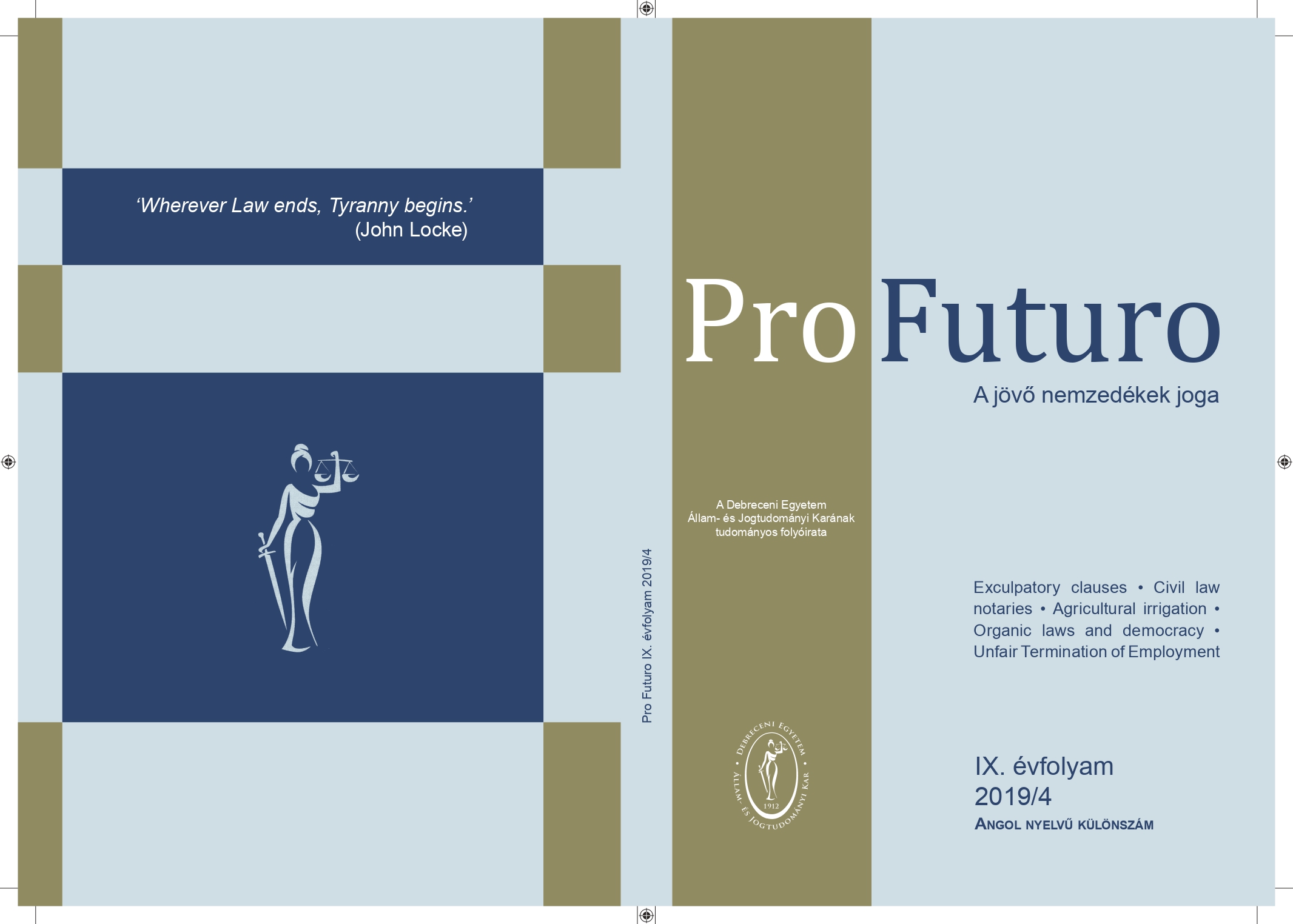Agricultural irrigation in Hungary, with special regards to the water resources levy and agricultural water supply fee
Szerző
Megtekintés
Kulcsszavak
Licenc
Copyright (c) 2020 Pro Futuro

This work is licensed under a Creative Commons Attribution-ShareAlike 4.0 International License.
Hogyan hivatkozzuk
Absztrakt
A vízkészletjárulék és a mezőgazdasági vízszolgáltatási díj alapján határozható meg az öntözés ára. Ezekről a vízgazdálkodásról szóló, 1995. évi LVII. törvény 15/A. (1) és a 15/F. (1) szakaszai rendelkeznek. Az öntözésre vonatkozó magyar szabályozásnak kettős követelménynek kell eleget tennie. Egyfelől, az aszály növénytermesztésre gyakorolt negatív hatása miatt az öntözés szükségességének és fontosságának meg kell jelennie az árra vonatkozó szabályokban (annak ellenére, hogy az öntözés az utolsó előtti helyen áll a vízkielégítési sorrendben). Másfelől, az árnak tükröznie kell a víz értékét, nevezetesen, hogy a víz mással nem helyettesíthető és feltételesen megújuló természeti erőforrás. A fent említett rendelkezések elemzését követően az a következtetés vonható le, hogy noha sok esetben igazolható az öntözéshez kapcsolódó járulék, illetve díj megfizetése alóli mentesség biztosítása, ugyanakkor ezeknek a mérlegelés nélküli, egységes alkalmazása, pl. a vízhasználók gazdasági erejére való tekintet nélkül, nem indokolt.
The price of the agricultural irrigation is determined by the water resources levy and agricultural water supply fee, which are regulated under Article 15/A. (1) and Article 15/F. (1) of the Act LVII of 1995 on Water Management. A kind of dualism concerning the price of the irrigation can be observed in Hungary. On the one hand, the necessity to irrigate has to be reflected in the price due to the negative impacts of drought on crop production, although irrigation scores low on the hierarchy of water uses. On the other hand, the price must also express the value of water as an irreplaceable natural resource with limited renewable capacity. Based on the analysis of the said provisions, it can be concluded that though allowing derogations from paying for the agricultural irrigation can be justified in many cases, concerns can be raised regarding their uniform application without involving discretion regardless, among others factors, of the differences in the economic situation of the farmers.


 https://doi.org/10.26521/Profuturo/2019/4/6723
https://doi.org/10.26521/Profuturo/2019/4/6723